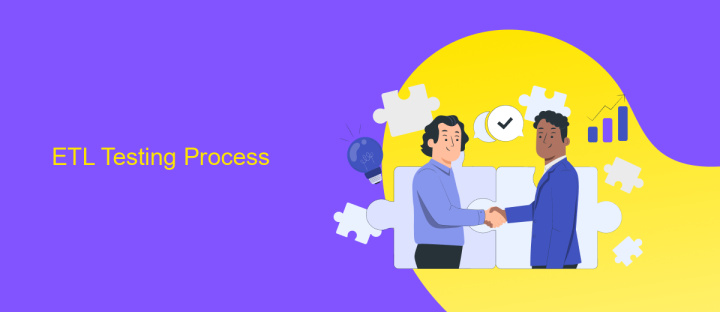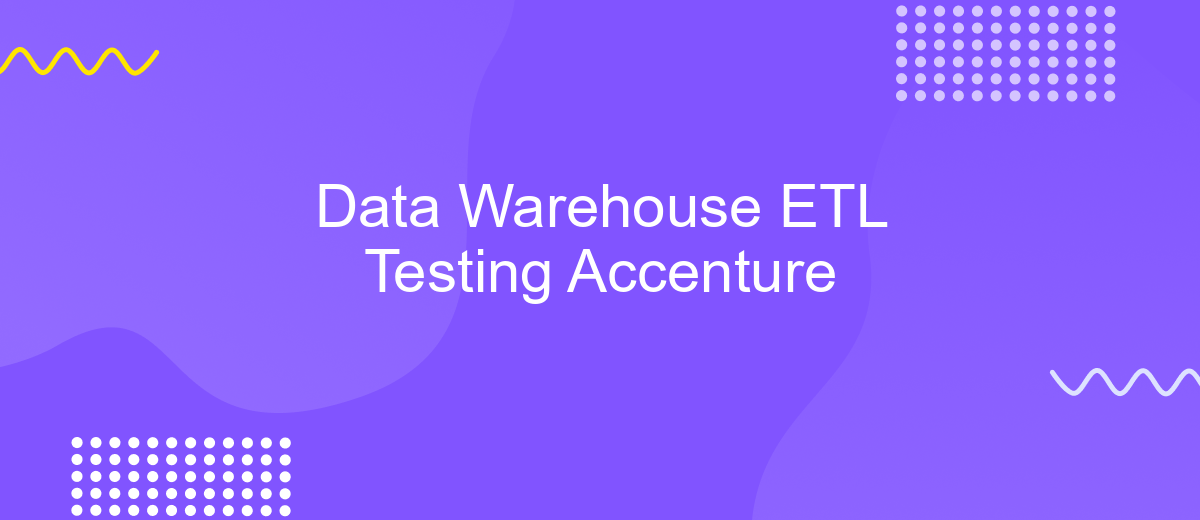Data Warehouse ETL Testing Accenture
Data Warehouse ETL Testing is a critical process in ensuring data accuracy, consistency, and reliability for business intelligence operations. At Accenture, we leverage advanced methodologies and tools to streamline ETL testing, ensuring seamless data integration and transformation. This article explores the best practices, challenges, and solutions in ETL testing, highlighting how Accenture's expertise can drive data quality and operational efficiency.
Introduction
Data Warehouse ETL (Extract, Transform, Load) testing is a critical process that ensures the accuracy, reliability, and performance of data within a data warehouse. Accenture, a global leader in consulting and technology services, offers comprehensive ETL testing solutions to help organizations maintain data integrity and optimize their data management processes.
- Verification of data extraction from various sources
- Validation of data transformation rules and logic
- Ensuring accurate data loading into the data warehouse
- Performance testing to identify bottlenecks and optimize ETL processes
- Integration testing with tools like ApiX-Drive for seamless data flow
By leveraging Accenture's expertise in ETL testing, businesses can achieve higher data quality and operational efficiency. Additionally, integrating with services like ApiX-Drive can simplify the process of connecting multiple data sources, ensuring smooth and automated data transfers. This holistic approach to ETL testing and integration helps organizations make informed decisions based on accurate and timely data.
ETL Testing Process

The ETL testing process involves several crucial steps to ensure data integrity and accuracy throughout the extraction, transformation, and loading phases. Initially, data is extracted from various source systems, which requires validating the data to ensure it matches the source. This step also includes checking for data completeness and consistency. Once the data is extracted, it undergoes transformation where business rules are applied. Testing during this phase involves verifying that the transformations are correctly implemented and that the data meets the required format and standards.
After transformation, the data is loaded into the target data warehouse. This phase includes verifying the data load process to ensure that all data is accurately transferred without any loss or corruption. Tools like ApiX-Drive can facilitate the integration and automation of these processes, ensuring seamless data flow between different systems. Additionally, post-load testing is conducted to validate data integrity and performance within the data warehouse. This comprehensive approach ensures that the ETL process is reliable and that the data warehouse provides accurate and timely insights.
Accenture's Approach to ETL Testing

Accenture employs a comprehensive approach to ETL testing, ensuring data integrity, accuracy, and performance across data warehouses. Their methodology includes a combination of automated and manual testing techniques to validate the ETL processes effectively.
- Requirement Analysis: Detailed understanding of business requirements and data models.
- Test Planning: Designing test strategies and creating test plans tailored to ETL processes.
- Test Case Development: Crafting detailed test cases and scripts to cover all ETL scenarios.
- Execution: Running tests using both automated tools and manual methods.
- Defect Management: Identifying, documenting, and addressing defects promptly.
- Performance Testing: Ensuring ETL processes meet performance benchmarks.
- Validation and Reporting: Verifying results and generating comprehensive test reports.
Accenture leverages tools like ApiX-Drive to facilitate seamless integration and automation in ETL testing. ApiX-Drive helps streamline data flows between various systems, enhancing the efficiency and reliability of the ETL processes. By incorporating such tools, Accenture ensures that data migration and transformation are executed flawlessly, meeting the highest standards of quality and performance.
Best Practices for ETL Testing

Effective ETL testing is crucial for ensuring data integrity and accuracy in a Data Warehouse environment. It involves validating the extraction, transformation, and loading processes to ensure that data is correctly transferred from source to destination without any loss or corruption.
To achieve optimal results, it is essential to follow a set of best practices. These practices help in identifying potential issues early in the process and ensure a seamless ETL workflow. Here are some key best practices for ETL testing:
- Define clear and comprehensive test cases covering all ETL scenarios.
- Automate testing processes using tools to increase efficiency and reduce manual errors.
- Validate data at each stage of the ETL process to ensure consistency and accuracy.
- Utilize data profiling to understand data quality and detect anomalies early.
- Leverage integration services like ApiX-Drive to streamline data transfer and reduce complexity.
By adhering to these best practices, organizations can enhance the reliability and performance of their ETL processes. Consistent and thorough testing not only ensures data quality but also helps in maintaining the overall health of the Data Warehouse system.
- Automate the work of an online store or landing
- Empower through integration
- Don't spend money on programmers and integrators
- Save time by automating routine tasks
Conclusion
In conclusion, Data Warehouse ETL testing is a critical component in ensuring the accuracy, reliability, and performance of data integration processes. Accenture’s approach to ETL testing leverages advanced methodologies and tools to validate data transformations, data quality, and data integrity, which are essential for making informed business decisions. The rigorous testing protocols help in identifying and rectifying errors early in the data pipeline, thereby reducing risks and enhancing the overall efficiency of data management systems.
Moreover, integrating automated solutions like ApiX-Drive can significantly streamline the ETL testing process. ApiX-Drive offers seamless integration capabilities, enabling the synchronization of various data sources and applications effortlessly. This not only accelerates the testing cycles but also ensures real-time data accuracy and consistency across platforms. By incorporating such innovative tools, organizations can achieve a more agile and resilient data infrastructure, ultimately driving better business outcomes and operational excellence.
FAQ
What is Data Warehouse ETL Testing?
Why is ETL Testing important for a Data Warehouse?
What are the common challenges in Data Warehouse ETL Testing?
How can automation benefit ETL Testing in Data Warehouses?
What are the key components to test in a Data Warehouse ETL process?
Apix-Drive is a universal tool that will quickly streamline any workflow, freeing you from routine and possible financial losses. Try ApiX-Drive in action and see how useful it is for you personally. In the meantime, when you are setting up connections between systems, think about where you are investing your free time, because now you will have much more of it.


